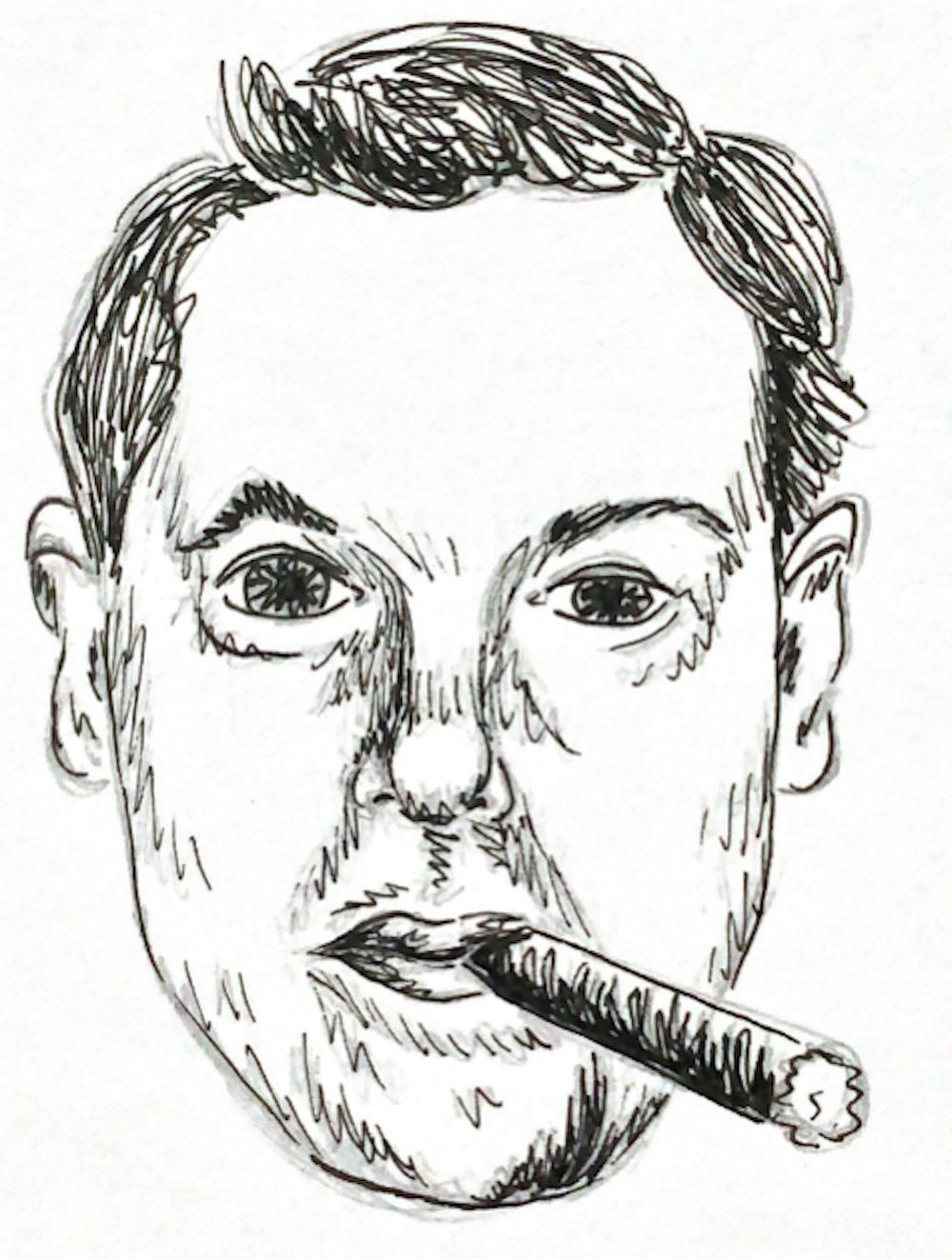As a young “Daily Express” correspondent, Evelyn Waugh (1903–66) once explained to a colleague the secret to success in the newspaper business. “The correct procedure [when assigned a story], is to jump to your feet, seize your hat and umbrella and dart out of the office with every appearance of haste to the nearest cinema,” Waugh said.
During what is hopefully the last few months of the Trump era, recommending Evelyn Waugh can seem like a daunting task. Both Waugh's brand of Catholicism and his political views bend towards the uber-conservative, and the novels of his later years increasingly include storylines and jokes that give way to theological tirades and overwrought language.
But when he stays away from untenable beliefs, Waugh’s novels reign supreme in their painstaking style and dark humor. The word “satire” almost doesn’t apply to his books; Waugh’s jokes don’t just strike the reader with their barbed venom but simply induce sheer (if at times uncomfortable) laughter.
Captain Grimes in Waugh’s novel “Decline and Fall,” for instance, has taught at a number of public boys’ schools in the UK for years but is always getting fired for getting “in the soup.” Grimes remains an optimist, though, because he always gets job transfers thanks to his social class. “Besides, you see, I’m a public school man,” Grimes says. “That means everything.” Waugh deftly savages “old boy” networks here, even as he blends the tricky line between satirizing classism and trivializing the horrors of sex abuse. That same cold hilarity is found in his novels “Vile Bodies” and “Scoop,” where characters often shrug at human folly and their own emotions.
For readers interested in more thoughtful literature, I still recommend Waugh for the overwhelming humanity of his two masterpieces “A Handful of Dust” and “Brideshead Revisited.” “Dust,” which recounts the fall of country aristocrat Tony Last after his wife Brenda leaves him for a younger man, has perhaps the meanest scene from any twentieth-century novel. When Brenda’s son John dies in a riding accident, for a moment, she thinks that her lover — also named John — has perished instead. Upon hearing that her boyfriend is alive, the now childless Brenda sighs, “Thank God.” It’s definitely an over-the-top scene, but we’ve all at one time or another met those wantonly self-centered beasts like Brenda Last, and few novelists capture the special banality of their narcissism more acutely than Waugh.
The structure of “Dust” also allows us to — barely — digest such heinousness by balancing genuine darkness with slapstick doom. Shortly after the cuckolded Tony Last flees to the Amazon, he gets abducted by a certain Mr. Todd, a Colonel Kurtz-esque hermit who captures Tony and forces him to eternally read aloud Charles Dickens at gunpoint. I can see an icier satirist like J.M. Coetzee constructing the “Thank God” scene, and perhaps Flannery O’Connor at her weirdest might employ “Nicholas Nickleby” à la Mr. Todd. But in my mind, only one writer adeptly combines these two types of gallows humor, laughing at evil in all its pain and all its absurdity.
And as for the sunnier anomaly of “Brideshead Revisited?” Well, a good deal of the novel’s last 200 pages play out a tad ham-fisted, particularly when Lord Marchmain — an avowed atheist and philanderer — suddenly takes Holy Communion in his last minutes, dying only after making the sign of the cross. But the book’s first 100 pages have an unvarnished sentimentality which has aged well. When the novel’s narrator Charles Ryder reflects on his college years, his comments on the features of Oxford wistfully transition into an ode to being young with one's friends. Charles especially misses “[Oxford’s] autumnal mists, her grey springtime, and the rare glory of her summer days — such as that day — when the chestnut was in flower and the bells rang out high and clear ... It was this cloistral hush which gave our laughter its resonance, and carried it still, joyously, over the intervening clamour.”
Rereading this passage, I find myself forgetting the shock humor of “Decline and Fall” and Waugh’s later persona, that cigar-chomping right-winger outraged over the dawn of a British welfare state and the Great Scandal of the Catholic Church (its 1964 cessation of the Latin Mass). Instead, this is Waugh at his most ornate and sincere. And Charles Ryder’s ruminations about Oxford definitely echo my own joys about returning to campus for this weird, masked, and somehow beautiful semester.
A case for Evelyn Waugh: Humanity and absurdity

Comments



